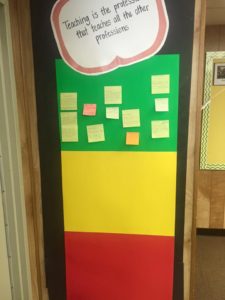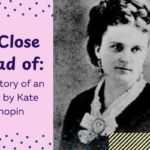 While the term “metacognition” was first coined back in 1979 by John Flavell, it seems to have resurfaced in the past few years in education. It comes up in educational conversation so much that it has almost become white noise. Many times I hear it defined as “thinking about your thinking.” This definition works, but metacognition is really about much more than that. Metacognition is not only thinking about your thinking, but also controlling your thinking. It is about being completely aware of your own knowledge and being able to control and manipulate your cognitive processes (Meichenbaum, 1985). This is when the idea becomes powerful and so important for educators to truly understand!
While the term “metacognition” was first coined back in 1979 by John Flavell, it seems to have resurfaced in the past few years in education. It comes up in educational conversation so much that it has almost become white noise. Many times I hear it defined as “thinking about your thinking.” This definition works, but metacognition is really about much more than that. Metacognition is not only thinking about your thinking, but also controlling your thinking. It is about being completely aware of your own knowledge and being able to control and manipulate your cognitive processes (Meichenbaum, 1985). This is when the idea becomes powerful and so important for educators to truly understand!
When students get to a level where they are capable of being aware of what they know and don’t know, controlling and manipulating that knowledge, and finally reflecting upon their thinking, they have become self-motivated learners. Isn’t our ultimate goal to get students to a level where they can be successful independently?
In order to have my students (undergraduate education majors) reflect on their learning and also provide formative assessment for myself in order to improve instruction, I used an exit ticket board. At the end of seminar, students were asked to reflect over newly learned information and respond on a sticky note. Then, as the name suggests, as they exit the classroom, students would place their sticky note answer on the color that represented how well they think they know the content. If they feel confident and think they are ready to move on, they would place their ticket on green. Yellow would mean they feel somewhat comfortable, while red means they still have a lot to learn. This board helps students reflect and become metacognative, at the same time providing me with valuable information to help inform instruction.
How do you get your students to become metacognitive?
Meichenbaum, D. (1985). Metacognitive methods of instruction: Current status and future prospects. Special Services in the Schools, 3(1-2), 23-32.


